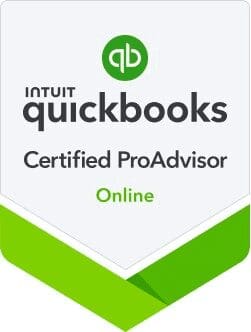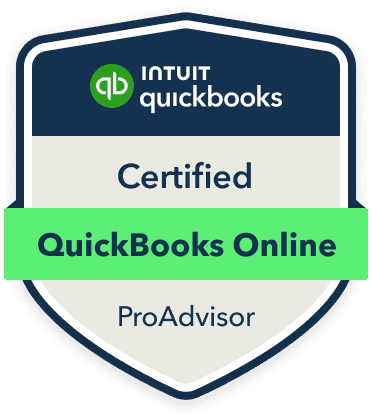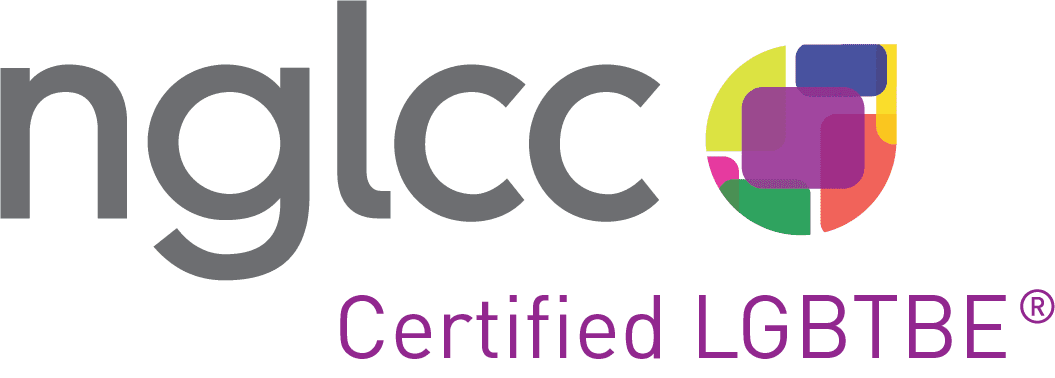Roofing contractors managing projects in Reno face unique financial challenges. Effective contractor accounting systems tailored to the roofing industry directly influence profitability, cash flow, and business sustainability. Many roofing projects span several months and involve significant material costs, making it crucial to have robust billing methods and financial tracking practices. Understanding how to structure billing, manage deposits, and monitor work-in-progress (WIP) helps roofing businesses maintain steady cash flow and accurately measure job profitability throughout a project’s lifecycle.

Progress billing paired with precise Work-in-Progress (WIP) accounting is more than a convenience; it is a survival strategy, especially for roofing contractors handling projects over $500,000 or lasting longer than a month. Billing clients incrementally in stages aligned with project milestones prevents cash flow gaps that could otherwise disrupt operations. Without progress billing, contractors risk waiting months for payment, forcing them to finance ongoing project costs out of pocket.
By breaking large projects into manageable billing segments, roofing contractors gain better control over their finances. Accurate WIP tracking ensures that costs incurred are matched with revenues recognized, providing a clear view of a job’s profitability as it proceeds. Roofing companies that invest in establishing these systems with expert guidance reap the benefit of strengthened cash flow and enhanced financial clarity.
We specialize in helping roofing businesses implement progress billing systems, draft contracts that protect cash flow, and leverage QuickBooks to track job-specific costs in real time. This approach equips roofing contractors with not just theoretical knowledge but practical tools, fostering a financially resilient operation capable of confidently taking on higher-value projects.
Smaller residential roofing jobs under $30,000 and typically completed within two weeks often fit well with completion billing, where invoicing occurs once the project finishes. This straightforward approach suits quick-turnaround projects with lower overhead costs and limited cash flow exposure. However, using completion billing for larger projects can strain a contractor’s finances severely.
For commercial roofing contracts exceeding $500,000, progress billing becomes indispensable. This method involves invoicing clients in increments tied to project milestones or percentages of completion, ensuring regular cash inflows throughout the job. The delay inherent in waiting to bill until project completion can create critical cash shortages that impede material purchases, labor payments, and overall project momentum.
Rought & Accounting helps roofing contractors assess which billing method fits each project, facilitates proper bookkeeping setups for handling multiple billing types, and trains teams to maintain accurate financial records. Through this tailored accounting approach, roofing businesses improve financial stability and maintain operational continuity across all project sizes.
Collecting a down payment upfront is a fundamental practice for roofing contractors to secure client commitment and fund initial job expenses. Industry standards recommend collecting between 10% and 30% of the contract value upfront, with 20% serving as a common benchmark. This deposit covers early material costs and signals client engagement.
Accounting for these deposits correctly is critical. Down payments should be recorded as “Customer Deposits” on the books until work begins, preventing premature revenue recognition and avoiding confusion during tax time. Properly handling these deposits ensures clear cash flow visibility and financial accuracy.
We assist contractors in accurately recording and managing deposits within their accounting systems, eliminating common pitfalls that can cause cash flow mismatches or tax reporting errors. With sound deposit accounting practices, roofing businesses obtain the financial breathing room necessary to start projects confidently and maintain strong client relationships.
Tracking actual job costs against billed amounts through Work-in-Progress (WIP) reporting is essential for managing roofing projects effectively. Without WIP reports, contractors risk either overbilling clients—which can erode trust—or underbilling, which can starve the business of needed working capital. Both outcomes damage profitability and client confidence.
By setting up detailed job costing within accounting software like QuickBooks, roofing contractors gain real-time insight into the financial status of each project. This includes monitoring labor, materials, subcontractor expenses, and overhead applied to jobs. WIP reporting provides the clarity required to adjust billing, control expenditures, and make strategic decisions before financial issues arise.
Our expertise lies in implementing WIP and job costing solutions tailored to roofing companies’ unique demands. Contractors benefit from transparent financial data that supports better cash flow planning, prevents costly mistakes, and positions their businesses for sustainable growth.
Effective contractor accounting turns roofing project challenges into manageable workflows that protect cash flow and enhance profitability. Progress billing and WIP tracking prevent cash shortages and provide ongoing profit visibility. Choosing the right billing method for each job size avoids unnecessary financial risk. Proper management of down payments secures funds upfront, reducing pressure on financial resources.
Roofing contractors in Reno looking to build stronger businesses can gain valuable support by partnering with experts who understand both the roofing industry and accounting best practices. Customized accounting strategies help businesses improve financial control, enabling them to bid confidently on larger projects and grow sustainably. Contacting Rought & Accounting provides access to personalized consultation, helping contractors design billing systems, job costing processes, and bookkeeping solutions tailored specifically to roofing operations. This collaboration improves cash flow management and overall business resilience—key factors for long-term success.
Navigating tax law changes can feel overwhelming, especially in construction where purchasing decisions and hiring processes directly impact your bottom line. The One Big Beautiful Bill Act introduces significant tax updates that affect contractors like you, from equipment write-offs to reporting requirements and expiring credits. Understanding these changes is essential to maintaining healthy cash flow and maximizing your business’s tax benefits. Partnering with a knowledgeable Reno accountant can ensure you stay ahead and fully leverage the opportunities ahead.

One of the most impactful changes is the restoration of 100% bonus depreciation for property acquired after January 19, 2025. This update means you can immediately deduct the full cost of qualifying assets such as equipment, trucks, tools, furniture, and software in the year you place them in service. Previously planned to drop to 40%, this full first-year write-off frees up cash flow by accelerating your return on investment and reducing taxable income significantly. Taking advantage of bonus depreciation now allows your construction business to reinvest savings into operations or new projects without delay. Careful timing of your purchases in consultation with your Reno accountant will be critical to maximize these benefits.
With this restored depreciation, budgeting for capital expenditures becomes more strategic. Instead of spreading the deduction over several years, you gain immediate tax relief that improves financial flexibility. This is particularly valuable in construction, where equipment costs tend to be substantial and ongoing. The ability to fully write off qualifying property right away encourages timely investments that keep your business competitive. Consulting a Reno accountant can help identify which assets qualify and ensure the proper documentation for smooth tax filing.
Starting January 1, 2026, the threshold for 1099 reporting will increase from $600 to $2,000 for payments made to subcontractors. This change reduces the administrative burden by limiting the number of smaller payments requiring detailed reporting. For your construction business, this means less paperwork when paying many subcontractors less than the new threshold, streamlining your year-end reporting process. However, maintaining accurate expense tracking remains essential to support deductions and meet IRS documentation requirements. Partnering with a Reno accountant ensures you adapt your bookkeeping practices effectively under these new rules.
While the reporting burden lessens, vigilance is necessary in managing subcontractor payments and documentation. Proper records will safeguard your business during tax audits or compliance reviews. The threshold increase is designed to ease paperwork, but your systems should continue to reflect true expenses reliably. An experienced Reno accountant can help set up or refine your processes to capitalize on these simplified reporting rules while maintaining solid financial controls. This foundation supports both compliance and sound business decisions.
Several tax credits crucial to your construction operations now require valid Social Security Numbers (SSNs) for eligibility, including the Child Tax Credit, American Opportunity Tax Credit, and Work Opportunity Tax Credit. For your hiring process, this means you must collect and verify SSNs early and accurately from all employees and subcontractors. Meeting these requirements is essential to securing credits that can significantly reduce your tax liability. Failing to do so risks losing valuable benefits and could trigger IRS penalties. A Reno accountant can guide you through updated verification procedures to ensure compliance and maximize your credits.
It’s also important to let your employees and subcontractors know about these tightened SSN requirements in advance. Clear communication helps avoid delays, ensures accurate records, and reduces the risk of missed credits. By preparing your team ahead of time, you’ll streamline the verification process and keep everyone aligned on what’s needed. A Reno accountant can provide the right guidance so you capture these credits without unnecessary complications.
Several important energy-related tax credits will expire soon, including Clean Vehicle Credits on September 30, 2025, and residential solar credits at the end of 2025. Planning equipment or renewable energy project purchases now is critical to take advantage of these incentives before they disappear. For construction businesses, investing in qualifying clean vehicles or solar installations can reduce upfront costs through tax credits, improving project feasibility and environmental responsibility. A Reno accountant can help analyze your options and time purchases strategically for maximum credit capture.
Missing these deadlines means losing out on financial incentives that can lower your effective tax rate and enhance business sustainability. The approaching expiration dates create urgency for contractors to act swiftly. Careful tax planning minimizes lost opportunities and supports your long-term goals in efficiency and cost savings. Consulting a Reno accountant informs your decisions about timing, eligibility, and documentation, positioning your business for optimal advantage before these credits phase out.
Each of these tax law changes impacts your construction operations differently, but together they highlight the need for careful tax planning and expert guidance. Reviewing how the One Big Beautiful Bill Act affects your current and upcoming projects will help create a robust tax strategy tailored to your business goals. Timely consultation with a Reno accountant enables you to schedule equipment purchases, verify documentation for credits, and streamline reporting workflows. Contact Rought & Accounting today to review these critical tax updates comprehensively, prepare for efficient compliance, and leverage incentives that support your growth in the Reno construction market.
Running a roofing business is no small feat. From managing seasonal revenue swings to addressing rising costs and labor shortages, roofing contractors face unique financial challenges. However, strategic tax planning can help alleviate some of these burdens. By leveraging smart contractor accounting practices, roofing contractors can uncover tax-saving opportunities that not only reduce their tax liability but also improve cash flow and reinvestment potential.This guide explores seven legal tax loopholes tailored specifically for roofing contractors. These strategies, when implemented effectively, can help contractors keep more of their hard-earned money while ensuring compliance with tax laws.
The legal structure of your roofing business plays a significant role in determining your tax liability. Many roofing contractors start as sole proprietors or partnerships, but as the business grows, transitioning to a more strategic entity such as an LLC or S Corporation (S Corp) can yield substantial tax savings.
Choosing the right structure depends on factors such as income level, business size, and long-term goals. Consulting a tax professional ensures you select the structure that maximizes savings while protecting your assets.
Section 179 of the IRS Tax Code allows businesses to immediately deduct the full purchase price of qualifying equipment and property in the year it is purchased, rather than depreciating it over several years. For roofing contractors who regularly invest in tools, vehicles, and software, this deduction can be a game-changer.
By reducing taxable income upfront, Section 179 frees up cash flow that can be reinvested into growing your business.

Roofing contractors often rely heavily on vehicles for transporting tools and materials or traveling to job sites. The IRS provides two methods for deducting vehicle expenses:
Accurate record-keeping is essential for maximizing vehicle deductions. Whether using a mileage log or tracking expenses through accounting software, maintaining detailed records ensures compliance and maximizes savings.
If you use part of your home exclusively for business purposes—such as managing schedules or handling administrative tasks—you may qualify for a home office deduction.
This deduction helps roofing contractors reduce taxable income while making better use of their home workspace.
Hiring family members can provide both financial and tax benefits for roofing contractors. For example:
Ensure that wages are reasonable and work performed is legitimate to comply with IRS regulations.

Roofing contractors incur numerous job-specific expenses that are fully deductible:
Tracking these expenses diligently ensures you claim every eligible deduction while maintaining accurate financial records.
Tax-advantaged retirement accounts not only secure your future but also provide immediate tax benefits:
Maximizing retirement contributions reduces taxable income today while building long-term wealth.
For roofing contractors in Reno and beyond, staying on top of accounting practices is critical for identifying these tax-saving opportunities. Accurate bookkeeping ensures that all eligible deductions are claimed while avoiding costly mistakes or audits. Partnering with professionals who understand contractor accounting can make all the difference in optimizing your financial strategy. Rought & Accounting specializes in helping roofing contractors navigate complex tax laws while implementing strategies tailored to their unique needs. By leveraging their expertise in contractor accounting, you can focus on running your business while they handle the numbers.
Navigating the complexities of business finance can be challenging, but with the right strategies, it becomes a foundation for growth and stability. As a business owner in Nevada, mastering fundamental bookkeeping practices is essential. This article provides practical tips to help keep your business's financial records organized and efficient.

Accurate financial information is the cornerstone of strategic decision-making for any business. Implementing reliable accounting software isn't just about procedure—it's about choosing a tool that streamlines financial tracking and offers valuable insights. Regular updates to financial records are vital for maintaining their accuracy, ensuring you're always prepared for unexpected expenses or tax obligations. Moreover, organizing receipts and invoices effectively protects your business from potential tax issues and simplifies audit processes. By preparing for significant expenses and understanding upcoming tax deadlines, you can safeguard your business's financial health and ensure compliance with local regulations.
Whether you're managing a startup or a well-established company, these bookkeeping tips will strengthen your financial practices and contribute significantly to your business's success.
In today's digital world, robust accounting software is essential for businesses looking to streamline operations and enhance financial transparency. An efficient accounting system provides real-time financial information, aiding better decision-making and reducing the risk of human error.
Selecting the right accounting software can be overwhelming given the numerous options available. It's crucial to choose a system that fits your business's current needs and can scale as you grow. Key features to consider include invoicing, budget tracking, payroll processing, and tax preparation. Integration with other business tools, such as CRM systems, can further enhance efficiency.
Keeping financial records up-to-date is not just crucial for managing finances; it's vital for maintaining business health. Regular updates provide an accurate picture of your cash flow, helping you budget effectively and avoid financial discrepancies. Up-to-date records also simplify tax preparation and audits, reducing stress and potential errors.
Implementing a consistent schedule for updating your financial records is essential. Automated accounting software can streamline this process, ensuring all financial information is current and accurate. Regular consultations with professional accountants can also provide valuable insights into financial trends, tax obligations, and growth opportunities.
Properly organizing receipts and invoices is crucial for maintaining financial health and ensuring compliance with tax regulations. Moving from paper-based to digital tracking improves efficiency, making it easier to categorize and retrieve documents. Many software tools allow you to scan and categorize receipts automatically, integrating the information into your accounting system.
To effectively manage receipts and invoices, establish a consistent system for organization. Regularly updating and reviewing your records prevents last-minute stress, especially during tax season. Backing up digital data is also essential to protect against technical failures.
Effective financial management requires planning for major expenses and meeting tax deadlines. Set up a dedicated savings account for significant purchases and automate contributions to build your funds steadily. Understanding your financial obligations and setting realistic timelines and budgets are crucial for successful financial planning.
Seek professional guidance when managing complex financial goals and tax responsibilities. Accountants and financial planners can offer personalized advice, helping you navigate tax planning, maximize deductions, and plan strategically for large expenses. Utilizing budgeting apps and tax software can further streamline this process, reducing stress and ensuring you're prepared.
At Rought & Accounting, we understand the importance of maintaining strong client relationships through reliable financial management. By offering tailored bookkeeping services, we ensure businesses can focus on growth and long-term success. Our commitment to accuracy and client satisfaction drives our approach, helping you build trust with your clients and stakeholders.
In today’s fast-paced and digitally-driven financial landscape, virtual bookkeepers play an increasingly vital role in helping businesses streamline operations and optimize costs. As more companies adopt remote working environments, understanding how virtual bookkeeping integrates with modern finance is essential. This article explores what virtual bookkeeping entails, how it differs from traditional methods, and why it might be the right solution for your business.

At its core, virtual bookkeeping involves managing a business’s financial records remotely. Unlike traditional bookkeepers, virtual bookkeepers use the latest technologies to provide services from any location, offering flexibility and real-time financial insights. This shift reduces overhead costs and allows business owners to focus on strategic decisions rather than day-to-day financial operations.
Virtual bookkeeping offers numerous benefits, including cost efficiency and flexibility. By eliminating the need for physical office space and offering scalable services, businesses can manage finances more efficiently. Virtual bookkeepers bring expertise and access to advanced financial tools, ensuring that your business remains ahead in managing its finances.
Virtual bookkeeping has transformed the way financial records are managed. Leveraging digital platforms and cloud-based software, virtual bookkeepers handle transactions remotely, providing real-time updates without the need for in-person meetings. Unlike traditional bookkeeping, which involves physical documentation, virtual bookkeeping ensures data is securely stored and easily accessible, making it a more efficient and eco-friendly option.
Virtual bookkeepers offer a wide range of services, from data entry and ledger management to full-scale financial analysis and payroll processing. This shift to digital bookkeeping highlights the importance of technical proficiency in today's financial landscape.
The transition to virtual bookkeeping offers significant benefits. One of the primary advantages is the reduction of overhead costs. Without the need for physical storage or office space, businesses save on operational expenses. Additionally, virtual bookkeeping allows for easy scalability, ensuring that as your business grows, the services can grow with it without hiring additional staff.
Another advantage is the enhanced accuracy and timeliness provided by automation tools and real-time data processing. Virtual bookkeepers help businesses maintain up-to-date, accurate financial records, allowing for quicker decision-making in a competitive market.
Virtual bookkeeping also offers robust security features. Cloud-based systems provide advanced security measures, reducing the risk of local data breaches or physical theft. Features like data encryption and regular backups ensure that sensitive financial information is protected, giving business owners peace of mind.
In conclusion, virtual bookkeeping represents a significant advancement in financial management. By embracing modern technologies, businesses gain efficiency, security, and scalability, making virtual bookkeeping a smart option for forward-thinking companies.
Choosing the right virtual bookkeeper can streamline your financial processes and enhance decision-making. Look for professionals with industry-specific experience and familiarity with modern accounting tools. The right virtual bookkeeper will not only understand your financial needs but will also provide expert insights to help your business grow.
Before hiring a virtual bookkeeper, it’s essential to assess your business's specific financial needs. This includes evaluating the scale and complexity of your transactions and understanding any industry-specific challenges that may impact your bookkeeping. For instance, a business dealing with international transactions requires a bookkeeper experienced in handling foreign exchange and global finance regulations.
Effective communication is another crucial factor. Bookkeeping involves more than just crunching numbers—it often requires problem-solving and decision-making. Your virtual bookkeeper should be proactive in providing financial updates and insights and should communicate complex accounting terms clearly.
Lastly, consider the scalability of the services offered. As your business grows, so will your financial requirements. Ensure your virtual bookkeeper can scale their services accordingly, without sacrificing the quality or timeliness of reports.
Ready to streamline your bookkeeping and focus on growing your business? Contact us today to learn more about how our virtual bookkeeping services can meet your unique needs and evolve with your business.
Embarking on the journey to becoming a proficient accountant demands more than just understanding numbers; it requires dedication, organization, and constant learning. In this article, we've teamed up with experts from Rought & Accounting in Reno to offer pivotal guidance that will serve both current accounting students and those contemplating a career in this dynamic field. Whether you're navigating your first semester or preparing to enter the professional world, these strategies are engineered to bolster your academic achievements and lay a robust foundation for a thriving career.

At the core of a successful accounting career is a solid understanding of fundamental principles. For students, grasping concepts such as the accounting equation, double-entry bookkeeping, and the intricacies of financial statements is imperative. These fundamentals are not just the building blocks of accounting; they are essential tools that will empower you to tackle more complex problems with confidence. By dedicating time to mastering these basics, you're setting yourself up for academic success and a competitive edge in the job market.
Remaining organized is crucial, particularly in a field as meticulous as accounting. Effective time management goes a long way in handling coursework, deadlines, and later on, professional responsibilities. Coupled with regular practice through problem sets and case studies, these habits enhance your ability to think analytically and maintain precision in your work—an absolute necessity for any aspiring accountant.
As the accounting landscape evolves, staying updated with the latest technological tools is key. Familiarity with software such as QuickBooks or Excel and understanding new ERP systems can greatly increase your productivity and employability. Moreover, building a professional network through internships, accounting associations, and industry events can provide invaluable experiences and mentorship opportunities. These connections not only enrich your understanding of the field but also open doors to potential job offers and collaborations.
Understanding the core principles of accounting is essential for students aiming to excel in the field. Grasping fundamental concepts such as the accounting equation, double-entry bookkeeping, financial statements, and generally accepted accounting principles (GAAP) can make a significant difference in their academic and professional journey. The accounting equation, Assets = Liabilities + Equity, forms the basis of all accounting systems and helps in maintaining balance in the books of accounts. Knowing how to apply this equation ensures that every financial transaction is accurately recorded and balanced across the company's financial statements.
Double-entry bookkeeping, another fundamental concept, requires that every financial transaction be recorded in at least two different accounts, ensuring accuracy and providing a method to easily detect errors. This principle mandates that for every debit entry, there must be a corresponding credit entry, maintaining the balance dictated by the accounting equation. Mastery of double-entry bookkeeping empowers students to handle complex financial records with confidence.
Financial statements, which include the balance sheet, income statement, and cash flow statement, are crucial for presenting the financial health of an entity in a structured manner. Understanding how to create and interpret these documents is vital for making informed business decisions. GAAP provides a set of rules and guidelines that govern the field of accounting. Familiarity with GAAP ensures that students and professionals are up to date with the standards that lead to transparency, consistency, and comparability in financial reporting.
By mastering these basic accounting principles, students lay a strong foundation for advanced studies in accounting and related fields. They equip themselves with the necessary tools to tackle complex accounting issues, engage in accurate financial forecasting, and contribute valuable insights in business strategy sessions. This solid foundation not only enhances academic performance but also significantly boosts career prospects in accounting, finance, and business management.
Furthermore, command over these fundamentals enhances a student’s ability to contribute to discussions on financial strategies, compliance, and financial ethics, making them valuable assets in their future workplaces. With these skills, they are better prepared to face various certification exams like Certified Public Accountant (CPA) or Certified Management Accountant (CMA), which require a deep understanding of these core principles.
In conclusion, the journey to becoming proficient in accounting starts with understanding and mastering its fundamental principles. This ensures that students are well-prepared to ascend to higher learning and professional opportunities, turning them into competent, ethical, and innovative professionals in the ever-evolving field of accounting.
In the complex and demanding field of accounting, staying organized is not just a beneficial skill, it's essential. Accounting students face the dual challenge of managing rigorous academic schedules and preparing for a professional environment that demands precision. Effective organization helps in achieving day-to-day success and sets a foundation for a flourishing career. Techniques such as maintaining a clean workspace, using digital tools for schedule management, and regularly reviewing class materials can significantly enhance one's ability to stay on top of their studies. Regularly updating task lists and setting clear priorities each week allows students to focus on what's most important, thereby efficiently managing their time and workload.
Maintaining meticulous records is another critical aspect of staying organized in accounting studies. This habit serves a dual purpose: it aids in better understanding and retention of complex material, and prepares students for the exacting nature of professional accounting, where accuracy in financial documentation is paramount. Using spreadsheets, dedicated accounting software, or even specialized apps to track grades, project deadlines, and exam dates can also streamline the process, making it easier to build a routine that reliably supports both academic and future professional needs.
Mastering time management is crucial for accounting students, who often juggle coursework, internships, and exam preparations simultaneously. One practical approach is the implementation of a priority-based schedule, where tasks are ranked according to their urgency and importance. This method not only helps in identifying what needs immediate attention but also in avoiding the pitfalls of last-minute stress. Additionally, breaking larger projects into manageable segments can reduce overwhelm and make large tasks seem more achievable.

Employing the use of modern technology can further enhance a student's ability to manage time effectively. Tools like calendar apps, reminder systems, and mobile planners can assist in keeping track of appointments, deadlines, and meetings, ensuring nothing is overlooked. Moreover, establishing a consistent study routine encourages discipline, a trait that is indispensable in the professional life of an accountant. Allocating specific times for studies, revisions, breaks, and leisure activities can create a balanced schedule that promotes sustained focus and productivity.
Ultimately, the skills developed through effective time management and organization in academic settings are directly transferable to the professional accounting landscape. As students transition into their careers, the ability to manage multiple tasks, meet deadlines, and maintain meticulous records becomes increasingly important. These skills not only boost efficiency but also enhance the credibility and reliability of an accountant, marking them as professionals of high caliber in a competitive field.
Accounting is not just about learning theories and principles; it is a skill that benefits significantly from continuous practice. Much like mathematics or science, proficiency in accounting comes from problem-solving and the application of concepts in various scenarios. For students aiming to excel in accounting, regular engagement with diverse types of exercises is crucial. Working on problem sets allows students to explore different situations where they can apply theoretical knowledge, helping solidify their understanding and adaptivity. Participating in case studies also provides deeper insights into the practical applications of accounting in the real-world business environment. Furthermore, simulations offer a dynamic platform to experience the real-time implications of financial decision-making, thus enhancing problem-solving speed and accuracy.
Engaging systematically in these activities not only builds expertise but also instills confidence in handling complex financial tasks. By practicing regularly, students can better identify their areas of weaknesses and work on them proficiently. This process is vital for anyone aiming to become a well-rounded professional. The consistent practice also helps students stay updated with the latest accounting standards and technologies, making them more competitive in the job market.
Analytical skills are essential for anyone in the field of accounting. They help professionals make informed decisions based on financial data. Regular practice helps develop these critical skills, as students learn to interpret and analyze financial information quickly and accurately. Investigations into company case studies expose students to complex financial records where they must decipher information, draw appropriate conclusions, and suggest effective strategies. This not only prepares them for the technical aspects of accounting but also enhances their decision-making capabilities.
Simulations and real-world scenarios provide students with opportunities to apply their analytical skills in a controlled, risk-free environment. Here, they can see the outcomes of their decisions and learn valuable lessons without the repercussions of real-life financial decision-making. Over time, this repetitive and reflective practice sharpens a student's ability to handle greater responsibilities and lead financial projects or teams with confidence and expertise.
In conclusion, practicing accounting regularly is fundamental for any student aspiring to succeed in the field. It equips them with the necessary skills, ensures they are adaptable to change, and prepares them comprehensively for professional challenges. Therefore, educators and learners alike should prioritize regular and diverse practice sessions in accounting education to foster a deeper understanding and proficiency in the discipline, ultimately benefiting their careers in the long run.
In an era where technology permeates every aspect of professional life, the field of accounting is no exception. Modern accountants are expected to be as proficient with software tools as they are with traditional accounting principles. Tools such as QuickBooks, Microsoft Excel, and various Enterprise Resource Planning (ERP) systems are not just aids but essential elements of daily accounting tasks. These platforms help in automating complex processes, minimizing errors, and saving time, thereby driving efficiency and productivity in the workspace.
For accounting students and aspiring professionals, staying abreast of these technological tools and the continuous innovations in the field is crucial. The landscape of accounting technology is continuously evolving, with advancements like cloud computing, artificial intelligence (AI), and blockchain becoming increasingly significant. Familiarizing themselves with these technologies can give students a marked advantage in the job market. Moreover, an understanding of technology can vastly enhance the capability to analyze financial data more effectively, thereby improving decision-making skills.
Furthermore, technology is also reshaping the role of accountants in business, making it more strategic rather than just procedural. Therefore, a robust grasp of technology does not only prepare students for current roles but also equips them for emerging opportunities within the field that focus on analytics, consultancy, and strategic planning.
Building a robust professional network is arguably as vital as academic excellence for students aiming to mark their presence in the world of accounting. Engaging with the community through industry events, accounting associations, and even social media platforms can open doors to numerous opportunities, including internships, part-time positions, and ultimately, full-time employment. Such platforms provide invaluable exposure to real-world challenges and the corresponding solutions adopted by practicing professionals.
Attending industry conferences and seminars not only helps in learning from the experiences of seasoned accountants but also assists in staying updated with the latest industry trends and regulatory changes. Moreover, participating in such events can potentially connect students with mentors who can offer guidance, career advice, and insights into the industry’s best practices.
Internships are particularly beneficial as they offer a direct experience of accounting work settings. They help students apply academic knowledge in practical scenarios, understand workplace culture, and develop professional skills. Part-time jobs or shadowing experiences also serve similar purposes and add significant value to a resume, providing a competitive edge in the job market.
By investing time in building these connections and gaining real-world experience, students can significantly enhance their understanding of the accounting field, making them well-prepared and more attractive candidates to potential employers.
Elevate Your Accounting Journey with Expert Guidance
Ready to take your accounting skills to the next level? Whether you're just starting or looking to refine your expertise, Rought & Accounting is here to support you every step of the way. Connect with us today to explore internship opportunities, gain practical experience, or receive personalized advice from industry professionals. Contact us today!
Freelancing and self-employment offer flexibility and independence but also come with unique tax responsibilities. As a freelancer or self-employed professional in Reno, understanding tax considerations is crucial for optimizing your tax obligations and ensuring compliance with federal and state tax laws. This guide provides essential tax tips tailored for freelancers and self-employed individuals to help you manage your taxes effectively.

One of the first steps in tax preparation for freelancers and self-employed professionals is understanding the different tax forms you’ll need to file. Here are the primary forms you should be familiar with:
1099-NEC: This form reports non-employee compensation. If you earn $600 or more from a client, they will issue you a 1099-NEC. Keep track of these forms as they reflect your total income.
Form 1040: This is your main individual income tax return form. It summarizes your income, deductions, and tax credits.
Schedule C (Form 1040): This form is used to report income or loss from a business you operated or a profession you practiced as a sole proprietor.
Schedule SE (Form 1040): This form calculates your self-employment tax, which covers Social Security and Medicare taxes.
Understanding these forms is critical to accurately report your income and expenses, ensuring you don’t miss any important details.
As a freelancer or self-employed individual, you are responsible for paying your taxes quarterly. Unlike traditional employees, taxes aren’t automatically withheld from your payments. Here’s what you need to know about quarterly tax payments:
Significance: Quarterly payments help you manage your tax liability throughout the year, avoiding a large tax bill at the end of the year and potential penalties.
Calculation: Estimate your total tax liability for the year, including income tax and self-employment tax, then divide by four. Use Form 1040-ES to calculate and pay your estimated taxes.
Deadlines: Quarterly tax payments are due on April 15, June 15, September 15, and January 15 of the following year. Mark these dates on your calendar to avoid missing a payment.
Staying on top of your quarterly tax payments ensures you remain compliant and avoid unnecessary penalties.
Maximizing your deductions is key to reducing your taxable income and saving money. Here are some common deductions for freelancers and self-employed professionals:
Home Office Deduction: If you use part of your home exclusively for business, you may qualify for the home office deduction. Calculate the percentage of your home used for business to determine the deductible amount.
Travel Expenses: Business-related travel expenses, including airfare, lodging, and meals, can be deducted. Keep detailed records and receipts to support your claims.
Equipment and Supplies: Expenses for equipment, such as computers, software, and office supplies, are deductible. If the equipment is used for both personal and business purposes, only the business portion is deductible.
By understanding and claiming these deductions, you can significantly lower your tax liability.
Deciding on the right legal structure for your business can have important tax implications. Here are two common structures for freelancers and self-employed professionals:
Sole Proprietorship: This is the simplest structure, where you and your business are considered one entity. While easy to set up, it doesn’t provide liability protection, and your personal assets could be at risk.
Limited Liability Company (LLC): Forming an LLC provides liability protection, separating your personal and business assets. It also offers flexibility in how you are taxed, potentially allowing you to choose to be taxed as an S Corporation for tax savings.
Each structure has its benefits and drawbacks, so it’s important to choose the one that best suits your business needs and goals.
Choose the Right Software: Accounting software can significantly simplify your bookkeeping tasks. Selecting the right software tailored to your business needs can enhance efficiency and accuracy. At Rought & Accounting, we recommend QuickBooks Online for its comprehensive features and user-friendly interface. QuickBooks Online offers automated transaction recording, expense tracking, and financial reporting, making it an excellent choice for small businesses.
Utilize Automation Features: Take full advantage of the automation features offered by QuickBooks Online. Automated bank feeds, expense categorization, and recurring invoices can save you valuable time and reduce manual entry errors. By automating routine tasks, you can focus more on strategic financial planning and less on data entry.
Navigating the tax landscape as a freelancer or self-employed professional in Reno can be challenging, but understanding the basics can help you manage your taxes effectively. By familiarizing yourself with essential tax forms, staying on top of quarterly payments, maximizing deductions, and choosing the right legal structure, you can optimize your tax obligations and ensure compliance. For personalized advice tailored to your unique situation, contact Rought & Accounting. Our experienced specialists are here to help you make informed decisions and achieve financial success. Don't forget to subscribe to our newsletter for more financial insights and follow us on social media for real-time updates.
In the bustling world of business, having dependable accounting services is not just beneficial—it’s essential. For businesses in Reno and beyond, a looming national accountant shortage poses new challenges and strategic demands. This shortage, driven by an aging workforce, fewer graduates entering the profession, and shifts caused by the COVID-19 pandemic, is impacting businesses at all levels. During the pandemic, many professionals in accounting adapted to remote work. However, some firm owners were slower to embrace this change, leading to an acceleration in retirements across both public and private sectors. As accountants moved up or transitioned from public to private roles, it created significant gaps in the workforce. Understandably, this shortfall could affect your operations, planning, and financial management.

The Scope of the Accountant Shortage
Between 2019 and 2022, more than 300,000 accountants left the industry, intensifying the accountant shortage in the United States. The combined factors of an aging workforce, changes in workplace expectations brought on by COVID, and fewer professionals entering the field have left a significant void. As senior accountants retire, the shortage of qualified replacements means businesses must now reconsider their financial strategies and find alternative ways to handle essential accounting tasks. For Reno businesses, understanding this shortage is key to planning future financial operations and maintaining smooth financial management.
Impact on Reno’s Small and Medium Businesses
Small and medium-sized enterprises (SMEs) in Reno are particularly vulnerable to the accountant shortage. These businesses often operate with limited resources, making them more susceptible to challenges like delayed financial reporting, compliance issues, and hindered growth due to a lack of strategic financial guidance. The shortage forces businesses to consider alternative solutions, such as outsourcing their accounting functions or adopting more sophisticated software.
Adaptive Strategies and Solutions for Reno Businesses
Thankfully, there are adaptive strategies that businesses in Reno can adopt to mitigate the impact of the accountant shortage. Leveraging technology, such as advanced accounting software and automation tools, can help streamline financial tasks. Additionally, outsourcing accounting services to specialized firms can bridge the gap created by the shortage.
At Rought & Accounting, we offer personalized solutions tailored to help businesses navigate these turbulent waters effectively. Whether it’s providing expert advice or handling day-to-day accounting tasks, we ensure that your business continues to run smoothly despite the national shortage.
Economic and Educational Drivers Behind Reno's Accountant Shortage
The national accountant shortage is driven by both economic and educational factors. The demand for accountants has surged as businesses grow and financial regulations become more stringent. At the same time, fewer students are choosing accounting as a career due to perceptions that it lacks dynamism compared to other fields like technology. Moreover, the rigorous CPA exam further discourages potential candidates from entering the profession.
This shortage is further compounded by the inability of educational institutions to keep up with modern accounting technologies, such as artificial intelligence and blockchain, leaving new graduates underprepared for the demands of today’s accounting landscape.
Future Outlook of Accounting Careers in Reno
The future of the accounting profession is changing, with a growing focus on technology integration and evolving business environments. Automation, AI, and data analytics are becoming increasingly important, reshaping the role of accountants from traditional number crunchers to strategic business advisors. Accountants who adapt to these changes and stay ahead of technological trends will find themselves in high demand, especially as businesses continue to rely on their expertise for more complex decision-making processes.
Contact Rought & Accounting today to learn how our expert accounting services can help your business overcome the challenges posed by the national accountant shortage, ensuring your financial stability and success.
As tax season approaches, residents and small business owners in Reno often face the daunting task of organizing their financial affairs for timely and accurate tax filing. Whether you're a seasoned filer or tackling this responsibility for the first time, understanding the strategies that local tax preparers recommend can transform your tax preparation experience. Rought & Accounting in Reno, a trusted name in personalized tax services, offers insights that can not only streamline your tax process but also enhance your financial outcomes.

Maintaining organized financial records throughout the year is a crucial first step recommended by tax experts. This practice eases the burden of tax filing and ensures that all deductions and credits are properly accounted for. Understanding the nuances of these financial benefits, such as what qualifies for a deduction or a credit, can significantly impact your tax liabilities and returns. Moreover, honesty and accuracy in your financial records are paramount. These records form the foundation upon which tax professionals like those at Rought & Accounting base their evaluations and advice. Additionally, staying informed about the latest tax laws and updates can make a major difference in your tax preparation strategy, helping you avoid last-minute confusion and potential errors.
Maintaining an organized system for managing financial records is not just a necessity for businesses but also an empowering strategy for individual consumers. The ability to swiftly locate financial documents can save time and mitigate stress when handling unexpected financial situations or during tax season. Establishing a year-round organization system helps you stay on top of your financial health.
Start by determining what documents should be kept and for how long. Essential documents such as tax returns, major financial records, and legal contracts should be retained for a minimum of seven years. Other items like utility bills, credit card statements, and bank statements should be kept until you have confirmed the accuracy of the transactions and filed any related tax deductions. Organizing these documents into clearly labeled categories, whether digitally or in physical folders, makes retrieval straightforward and quick.
Digital organization has become a favored method due to its convenience and the added security features available. Using cloud storage solutions with encryption protects sensitive information from theft and environmental damage. Additionally, many financial institutions now offer digital statements and document storage that can be integrated into personal financial management software. This reduces physical storage needs and allows easy access across multiple devices with appropriate security measures in place.
Tax season can often feel overwhelming with its myriad forms and regulations. Yet, among the complexities, deductions and credits stand out as the superheroes of tax savings, directly reducing how much you owe to the state or federal government. These financial incentives encourage specific behaviors like investing in green technologies, pursuing higher education, or supporting charitable causes. While both reduce your tax burden, deductions lower the income you're taxed on, whereas credits decrease your tax bill dollar-for-dollar.
To effectively utilize deductions, it's crucial to understand the difference between standard and itemized deductions. The standard deduction, a set amount determined by your filing status, simplifies the process but might not provide the savings of itemized deductions, where you calculate relevant expenses. Common itemized deductions include mortgage interest, state and local taxes, and medical expenses exceeding a certain percentage of your income. Deciding whether to itemize or take the standard deduction depends on which scenario offers the greater tax benefit. Planning and record-keeping are essential to substantiate your deductible expenses.
For individual taxpayers, understanding personal tax credits can lead to significant savings. Common credits include the Earned Income Tax Credit (EITC) for low to moderate-income workers and families, the Child and Dependent Care Credit for parents incurring childcare costs while working or studying, and Education Credits for those pursuing post-secondary education. Each credit has specific qualifications and can sometimes be refundable, meaning they could reduce your tax liability below zero and result in a refund.
Business owners can also reduce their tax burden through credits aimed at fostering certain activities. For example, the Small Business Health Care Tax Credit helps small businesses and tax-exempt organizations afford the cost of covering their employees. Moreover, the Research and Development (R&D) Tax Credit incentivizes businesses of all sizes to pursue innovation within their industries. These credits not only lower tax liability but also support business growth and operational goals.
In essence, understanding the intricacies of deductions and credits is key to maximizing your tax refunds or minimizing what you owe. Whether you're an individual taxpayer or a business owner, consulting with a tax professional who can help you navigate the options and plan accordingly is wise. This knowledge aids in compliance with tax laws and optimizes financial performance, aligning strategically with personal and business finances.
In today's fast-paced business environment, maintaining accurate and honest records is not just a legal duty but a strategic asset. Accurate financial records are crucial for understanding your business’s financial health, making informed decisions, and ensuring compliance with tax laws and regulations. For Rought & Accounting, the importance of this cannot be overstated, as it significantly influences the firm's reliability and reputation.
Accurate record-keeping provides detailed and clear insights into the profitability and financial status of your business. It allows you to identify strengths, weaknesses, and opportunities for improvement. When your financial records are in order, assessing new strategies for growth becomes much easier. This practice helps in internal management and boosts consumer confidence, enhancing relationships with investors and creditors.
Moreover, accurate records reduce the chances of financial mismanagement and fraud. They act as a check and balance, ensuring that every transaction is accounted for and can be traced back to its source. For consumers, this transparency builds trust and assures them of your business’s integrity. Furthermore, such practices improve your standing with search engines, as online mentions of your company will likely be positive due to fewer financial discrepancies and customer complaints.
Tax laws are constantly evolving, making it imperative for consumers to stay informed about the latest changes that could affect their financial health. Tax law adjustments can have significant implications on personal finances, business operations, and investment decisions. Understanding these changes not only helps in complying with the law but also in optimizing tax liabilities. At Rought & Accounting, we dedicate ourselves to dissecting these complex alterations and simplifying them for our clients.
Every year, various adjustments to tax laws occur at both federal and state levels. These can range from shifts in tax brackets and changes in deductions and credits to new regulations affecting retirement savings or healthcare benefits. For individuals, this could mean different strategies for filing taxes, potentially leading to significant savings or avoiding legal penalties. For businesses, staying updated could affect everything from payroll to profit margins.
The main reason staying informed about tax law changes is essential is compliance. Failing to adapt to new laws can result in fines and penalties. However, the benefits extend beyond mere compliance. For individual taxpayers, understanding how new tax laws impact their deductions, credits, and overall tax liability can lead to substantial financial savings. For businesses, it can influence strategic decisions related to business structure, employee benefits, and expense management.
Moreover, tax laws are influenced by political and economic conditions, meaning they can change frequently and sometimes drastically during economic downturns or when new administrations take office. Consumers who stay informed can adjust their financial planning strategies accordingly to take advantage of beneficial changes and mitigate adverse effects from others.
Navigating the complexities of financial management can be challenging, especially for small to medium business owners in Reno who seek to maximize efficiency without compromising quality. Rought & Accounting offers expert bookkeeping services tailored to meet your specific needs. Our professional bookkeepers in Reno, NV, are skilled at refining your financial practices, leading to significant savings and improved business health.

With meticulous expense tracking, our bookkeepers ensure that every dollar is accounted for, thereby maximizing your potential tax deductions. This careful approach not only helps reduce your tax liabilities but also provides you with a clearer understanding of your financial status. Additionally, by implementing strategic financial practices, we help to minimize wasteful expenditures, enabling your business to allocate resources more effectively.
Efficient invoicing systems are essential for maintaining a healthy cash flow. Our services in Reno ensure that your invoicing is timely and accurately reflects the services provided, helping you get paid faster and more reliably. Regular financial reviews conducted by our experts keep your business strategies sharp and responsive to market changes. These assessments fine-tune your financial tactics, ensuring your business remains financially healthy and competitive.
Remember, effective financial management isn't just about cutting costs—it's about making smarter decisions that lead to long-term stability and growth. Contact Rought & Accounting today for a free consultation or to receive a quote on our transformative bookkeeping services. Let us help you optimize your financial strategies and save money, setting your business on the path to increased profitability.
Maximizing tax deductions significantly lowers your annual tax burden and enhances your financial health. Effective tax management requires meticulous record-keeping and a thorough understanding of deductible expenses. Detailed tracking simplifies the process at tax time and ensures you capitalize on every opportunity to reduce your taxable income.
Implementing a robust system for logging expenses can seem daunting, but modern tools and apps make this task manageable. Categorizing expenses as they occur prevents a massive sorting task at year-end, with categories such as transportation, home office expenditures, and professional fees potentially qualifying for deductions.
Effective financial management is crucial for any business's sustainability and growth. Strategic financial practices are essential in reducing wasteful expenditures and boosting overall company health. Implementing a robust budgeting and forecasting system helps businesses identify potential overspend areas, allowing for more efficient resource allocation.
Automation and integration of financial systems play a significant role in curbing waste. Modern financial software can detect inconsistencies that human analysts might miss, ensuring competitive pricing and preventing overordering. Regular audits and stringent controls further enhance financial integrity and prevent fraud.
Managing cash flow effectively is vital for the growth of any business. An efficient invoicing system ensures that businesses are paid promptly and minimizes the time spent on the billing process. Modern digital invoicing solutions automate many steps, reducing errors and speeding up the payment cycle. These systems can integrate with accounting software, facilitating real-time tracking and providing up-to-date financial reporting.
Regular financial reviews are crucial for maintaining and growing business wealth. These reviews allow business owners to stay on top of their finances, identify inefficiencies, and adjust strategies to better align with their goals. Regular assessments also help mitigate risks by ensuring that all financial decisions are based on up-to-date information.
Structured financial reviews, ideally with external experts such as financial advisors or accountants, ensure that your business strategies remain relevant and effective. Each review should result in actionable items that enhance financial health and empower businesses to navigate financial landscapes proactively.
Rought & Accounting understands the importance of building strong relationships with clients through reliable financial management. By offering tailored bookkeeping services, we ensure that businesses can focus on growth and long-term success. Our commitment to transparency, accuracy, and client satisfaction drives our approach to financial management, helping you build trust with your clients and stakeholders. Contact us today!



